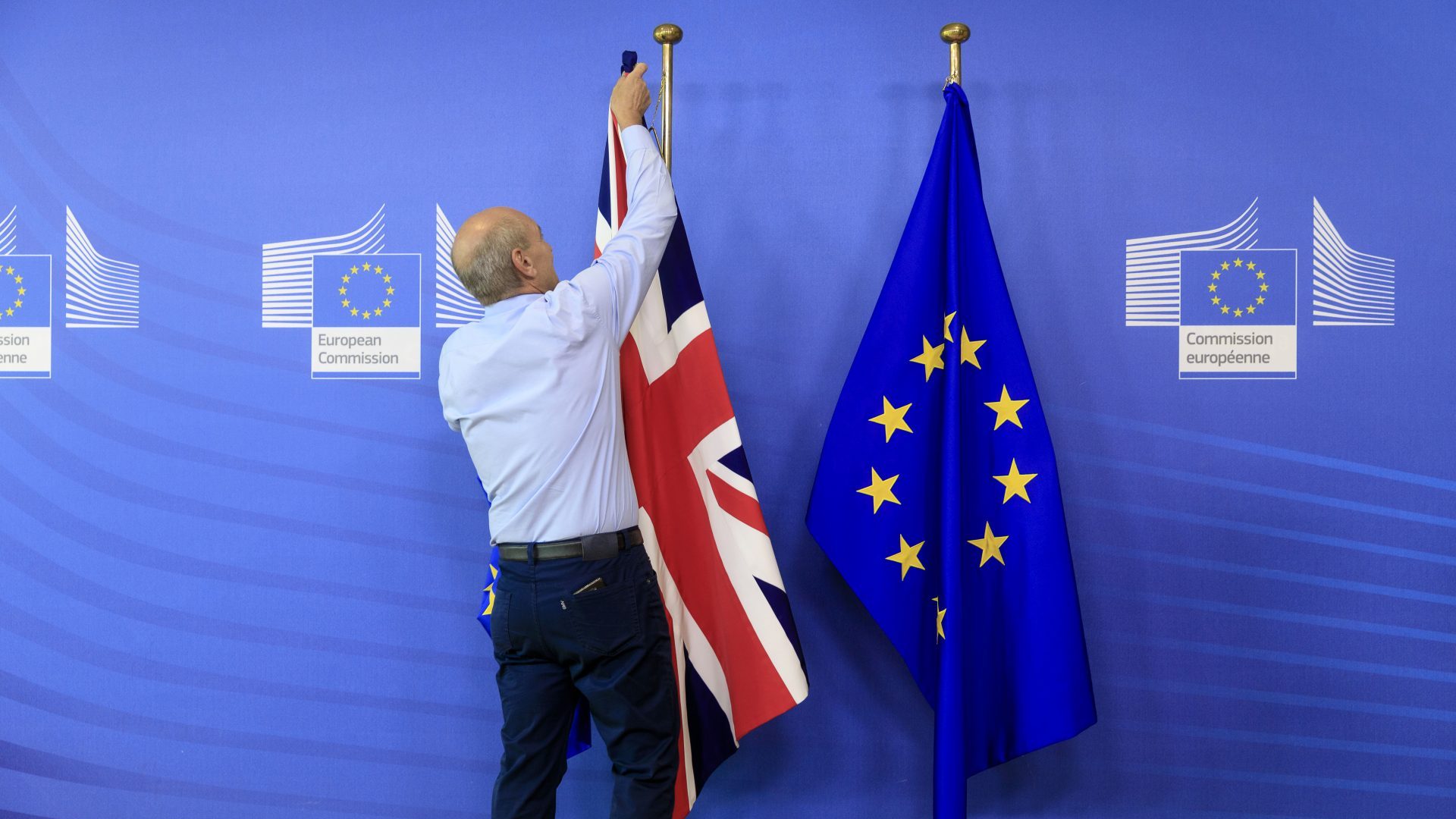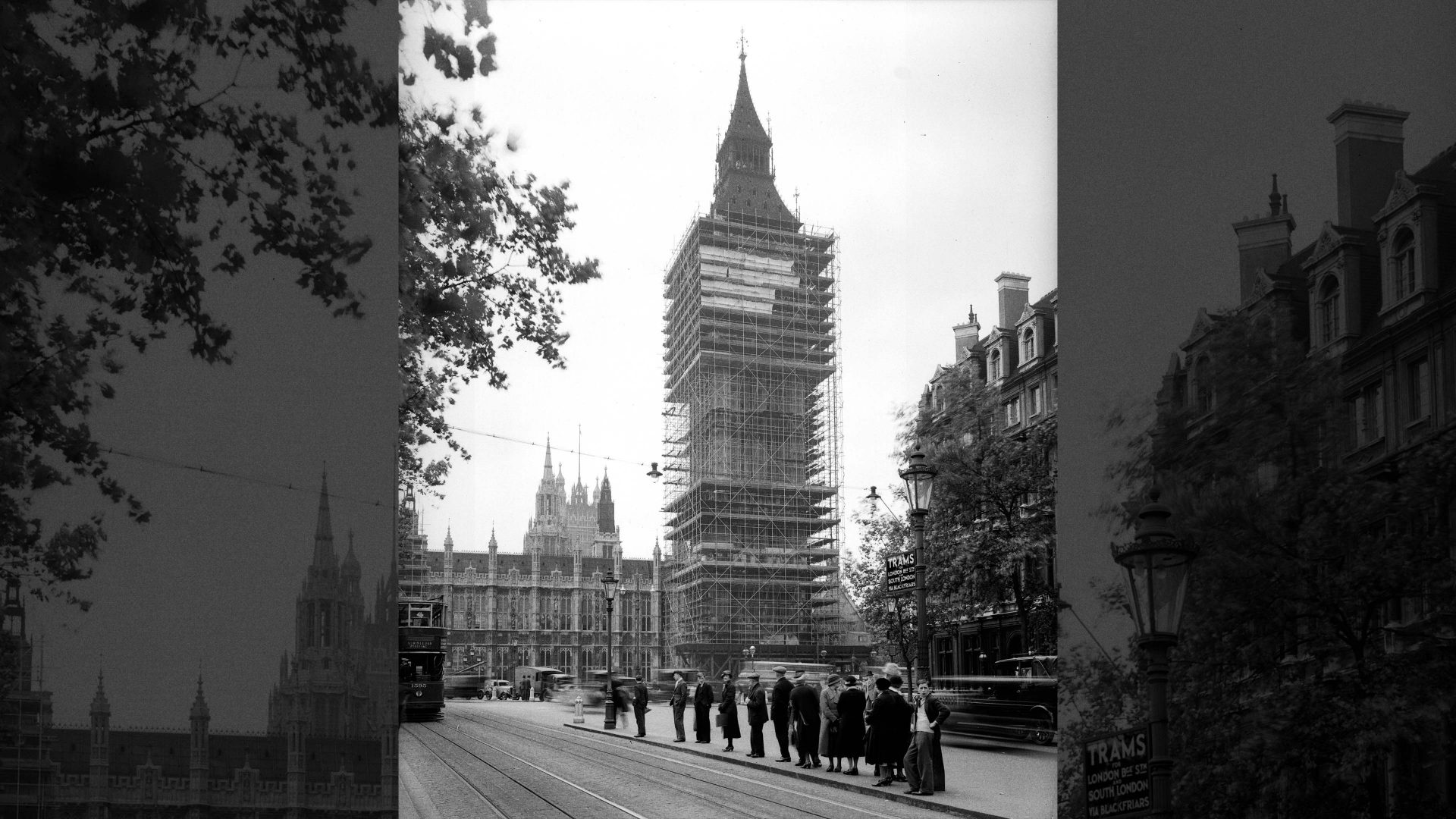When it comes to rethinking Brexit, both the evidence and the sentiment are moving in only one direction. Last week, a report from Britain in a Changing Europe showed how state-backed investment in infrastructure and energy has collapsed since 2020, when the European Investment Bank ceased funding projects here.
The four domestic banks that have had to take over its role are now lending less than a third of what the EIB was pumping into offshore wind, nuclear power and electric grid infrastructure. That low figure would have been even lower if not for the stellar performance of Banc, the Development Bank in Wales, where the devolved government is controlled by Labour.
Meanwhile, the architects of hard Brexit are staring doom in the face. In his Telegraph column, Lord Frost laments not only Labour’s plans to collaborate and align with Europe over environmental and migration policies, but the explicit buyers’ remorse that has emerged in the Tory Party – with Rishi Sunak’s deal to rejoin the Horizon science collaboration project as a straw in the wind. “All too many people in all the parties think Britain’s destiny is to retrace our steps and get closer again to the EU,” writes the man who designed the disaster.
And not only in Britain. The G20 summit in New Delhi saw the launch of Imec – an alliance of the USA, Saudi Arabia, the UAE, India, the EU plus France, Germany and Italy – to create a trade, energy and digital cable network from Mumbai to Amsterdam. Conceived as an India-centric alternative to China’s Belt and Road Initiative, Imec studiously excludes the UK.
Though it is being spun as an oversight, with an option for the UK to join at a later date, the exclusion of the UK is logical. Because from the get-go, Boris Johnson framed hard Brexit as the opportunity for Britain to “do its own thing” in the Indo-Pacific region – ripping apart preferential trading blocs in the pursuit of its selfish national interest. In return, the Biden administration – which has placed the USA in the driving seat alongside the EU and India – has pointedly excluded Britain from the project.
The fact is, hard Brexit was a one-way bet on the emergence of deeper economic globalisation – of a kind that would undermine the EU and the North American Free Trade Agreement (Nafta), allowing Britain to duck and weave between the major powers in pursuit of marginal advantage.
Instead, we’re facing rapid deglobalisation. And the response of the major powers – the EU, USA, India, China and Russia – is to create rival geopolitical centres of gravity, centred not just on trade and regulatory alignment but on socio-cultural values and commitment to the rule of law.
Even though Imec only exists on paper, as a memorandum of understanding its purpose is clear: an EU-US gambit to incentivise India to orient its trade and technology future towards the west and to weaken its links with Russia and China. Britain’s exclusion from this new Great Game is self-inflicted.
Likewise, when it comes to the complex fiscal and industrial strategy measures formulated in response to China’s belligerence, the UK is on the sidelines. Biden’s Inflation Reduction and Chips and Science Acts were overt attempts to “reshore” hi-tech and energy industries to America, in order to de-risk economic relationships with China. The EU enthusiastically emulated them, and sought synergies with US actions – for example over steel. The UK denounced Biden from the sidelines and – because of post-Truss austerity – has done the meagrest forms of state intervention.
As to the European Commission’s shock move last week to launch an investigation into heavily subsidised Chinese electronic car imports, here again the UK will either be forced to align with Europe or sit like a pariah state between Europe and the USA, refusing to play the emerging game of economic self-defence.
So when Sir Keir Starmer says there is “no case” for Britain rejoining the European Union I – like many other Labour members and politicians – remain sceptical.
If a Labour government is prepared enthusiastically to try voluntary alignment, plus a series of bilateral deals with Europe built around a common security agreement, it is only when we see the results that “no case” can be proven economically.
Since Labour will be carrying out enthusiastic state-direction in pursuit of its “five missions”, it will be in a different mode to all post-Brexit governments, which have effectively mixed laissez-faire with what I call “declaratory dirigisme” – politely suggesting the private sector follows national economic goals without erecting the institutions or governance mechanisms to make it happen.
Once the UK is doing industrial strategy for real – in defence, aerospace, steel, green energy and transport – it must either align its incentives with those of the USA and EU, or compete with them – and the latter is a suicide strategy.
The left’s duty now is to think long-term about Britain’s relationship with Europe – taking in trade, technology, migration and security as a whole. Brexit, remember, was a long-term project – boosted by Russian interference for sure – fundamentally designed to make Britain a low-tax, offshore playground for the world’s super-rich. We will only remedy its failure by thinking equally long term.
Brexit has failed, ultimately, because globalisation is failing. In a multipolar world, you are inevitably caught in what Frost calls the “tractor beam” of one of the big, global economies. It is around that fact that all policy towards Europe now has to revolve.




